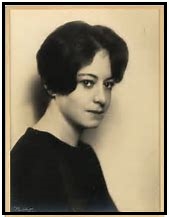 Jason Miller (April 22, 1939 – May 13, 2001) was an American actor and playwright. He received the 1973 Pulitzer Prize for Drama for his play That Championship Season and was widely recognized for his role as Father Damien Karras in the 1973 horror film The Exorcist, a role he reprised in The Exorcist III. He later became artistic director of the Scranton Public Theatre where That Championship Season was set.
Jason Miller (April 22, 1939 – May 13, 2001) was an American actor and playwright. He received the 1973 Pulitzer Prize for Drama for his play That Championship Season and was widely recognized for his role as Father Damien Karras in the 1973 horror film The Exorcist, a role he reprised in The Exorcist III. He later became artistic director of the Scranton Public Theatre where That Championship Season was set.
In 1982, Miller directed the screen version of That Championship Season. His own film career was sporadic, as he preferred to work in regional theater: In that year Miller returned to Scranton to become artistic director of the Scranton Public Theatre, a new regional theatre company founded the year before. In 1998, he toured the country in his one-man play Barrymore’s Ghost, ending the tour with a four-month run off-Broadway.
Miller was the father of actors Jason Patric (by first wife Linda Gleason, daughter of Jackie Gleason) and Joshua John Miller (by second wife Susan Bernard).
On May 13, 2001, Miller died of a heart attack in his hometown of Scranton, Pennsylvania. In 2004, actor Paul Sorvino, a longtime friend of Miller, was commissioned by Scranton to create a bronze bust of the late playwright and actor. The statue was unveiled in December 2008.
Lou Gherig Did Not Die of Cancer, by Jason Miller (Running Time: 47:28)
Starring Nancy Kawalek, Tony Miratti and Danielle Aubuchon
(Little League Baseball versus Henrik Ibsen)
Podcast: Play in new window | Download
Subscribe: RSS
 Dorothy Parker (née Rothschild; August 22, 1893 – June 7, 1967) was an American poet, writer, critic, and satirist based in New York; she was best known for her wit, wisecracks, and eye for 20th-century urban foibles.
Dorothy Parker (née Rothschild; August 22, 1893 – June 7, 1967) was an American poet, writer, critic, and satirist based in New York; she was best known for her wit, wisecracks, and eye for 20th-century urban foibles.